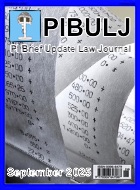The 'Relevant Period' in a Part 36 offers means what you think it does - Andrew Ratomski, Temple Garden Chambers

18/04/25. Henderson and Jones Limited v Salica Investments Limited and Others [2025] EWHC 838 (Comm)
Date of judgment: 4 April 2025
This case is an illuminating decision on the construction of alleged defects in a party’s Part 36 offer in relation to timing. The underlying claim concerned a claim by a litigation funder, the Claimant, for a breach of confidence against the First and Fourth Defendants. The Claimant was awarded damages in the sum of a little over £2 million after an eight day trial. A number of consequential issues then arose including the validity of the Claimant’s Part 36 offer and were it were found valid, whether the judge should award the usual Part 36 consequences.
The issue
On 31 October 2023 the Claimant made a Part 36 offer by letter. Para. 2.1 provided: “If the Defendant accepts this Part 36 Offer after the end of the Relevant Period, they will be liable for the Claimant’s Costs…”but the letter did not otherwise define “Relevant Period”. The Defendants argued that as a result the offer was defective and did not comply with rule 36(5)(1)(c), namely that an offer must specify a period “of not less than 21 days within which the defendant will be liable for the claimant’s costs…”.
The arguments
The Defendant’s argument was that “Relevant Period” absent definition could have been any period of time and it could not be assumed to mean 21 days. The Defendants relied on the dicta of Moore-Bick LJ in Gibbon v Manchester City Council [2010] 1 WLR 2081 which emphasised the need for parties to comply with the formal rules of Part 36.
The Claimant contended that whilst the definition was missing from the relevant offer letter, a relevant period of 21 days was defined in a previous Claimant’s Part 36 offer made on 26 May 2023 and by a Defendant’s Part 36 of 3 May 2023. It was said the meaning of the term could be inferred, the Claimant intended to make a valid Part 36 offer and it was submitted there was no reason to offer a longer period. The letter also contained the usual provision that the Defendants were to notify the offeror if it considered the offer to be defective or non-compliant. The Claimant also relied on the White Book commentary at rule 36.2.4 along with the Court of Appeal’s decision in C v D [2011] EWCA Civ 646 and argued that the court should prefer the construction if possible that gives effect to the stated intention and allows the offer to be effective.
Decision
The judge upheld the offer. He relied on the earlier without prejudice save as to costs correspondence, it was relevant that both parties had made offers where a Relevant Period was expressly defined as being one of 21 days. The offer the Claimant now relied on was the last offer in that exchange of offers. Relevant Period was defined with capitals. The judge considered that a reasonable reader would fully understand what was meant by the term in the 31 October 2023 offer. It was also significant that the Defendants had not raised an issue as to what the term meant at the time and was now taking the objection later, this point underlined that the parties were in no real doubts as to the construction of the offer.
The judge also rejected the Defendants’ argument that principles of contractual construction had little role to play in this context. The offer was therefore held to be valid.
Discussion
On one hand this case is an encouraging decision for the principled policy of the courts to promote settlement and uphold valid Part 36 offers where that construction is possible. However, plainly the previous correspondence saved the day in this particular case and it is far from certain that a similar interpretation would apply to a single isolated Part 36 offer that did not define a “relevant period”. It is always advisable to adopt the Part 36 standard form when making an offer, to ensure that all procedural requirements are met, otherwise there is no good reason not to define common terms even where the courts accept their meaning is unlikely to be ambiguous.
https://caselaw.nationalarchives.gov.uk/ewhc/comm/2025/838?query=Salica+Investments
Image ©iStockphoto.com/sellingoutstieglitz












![Appeal judge rules that credit hire company has no costs liability following a finding of fundamental dishonesty in personal injury case: RSA v. Fastrack Solutions Limited [2023] 4 WLUK 92 - David Bowden, Erimus Chambers](/content/images/resized/images/stories/carkeys_72_72.jpg)


